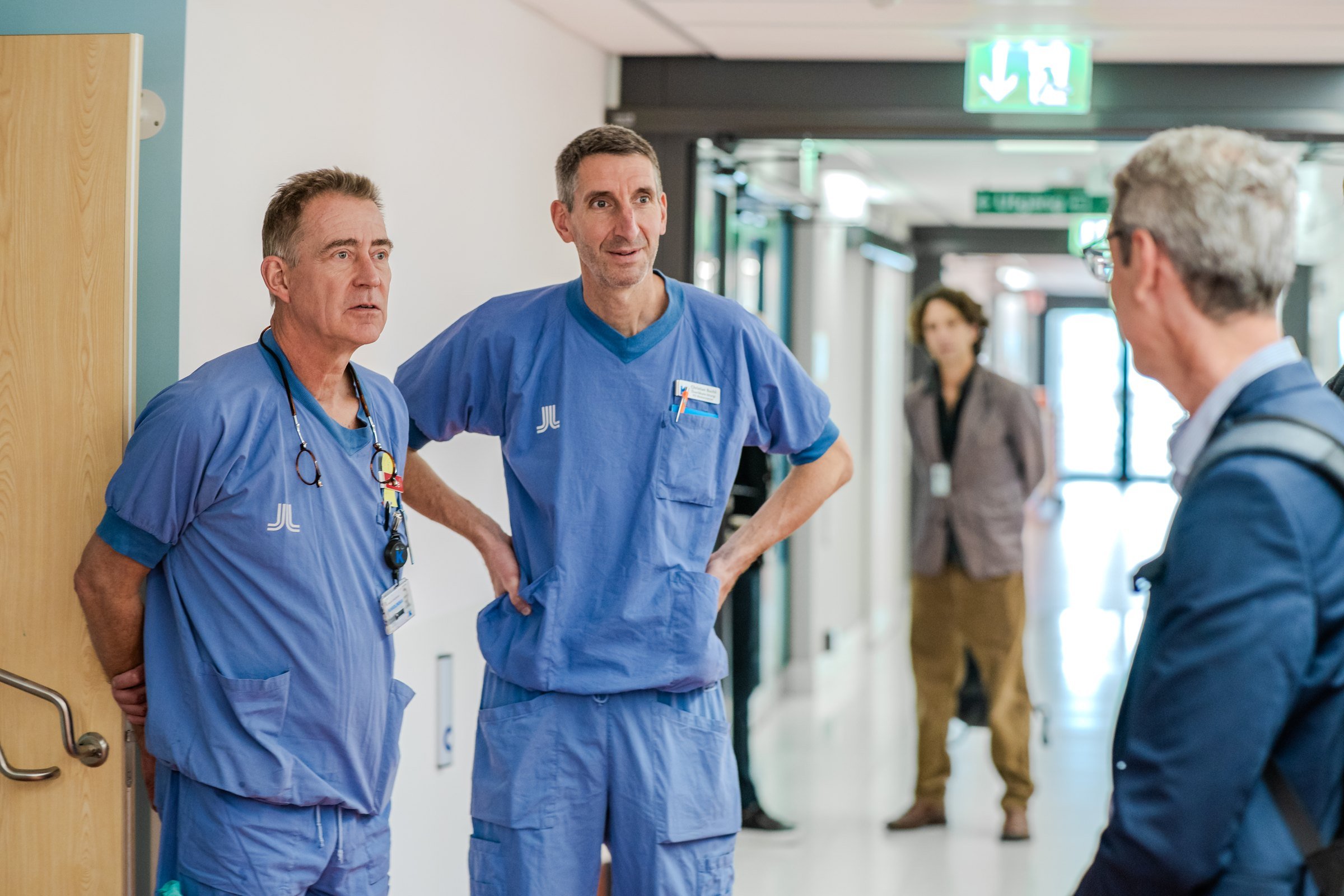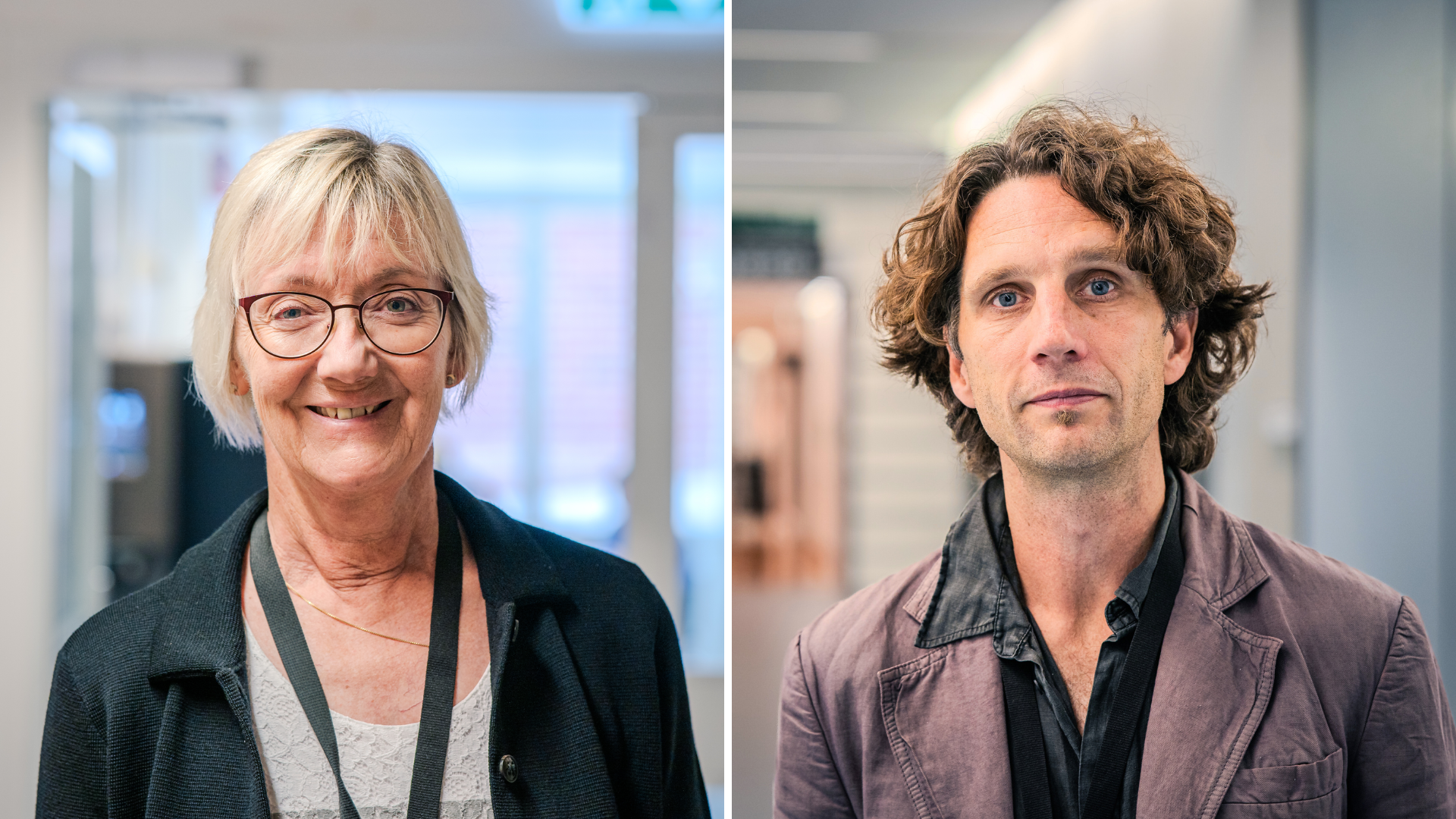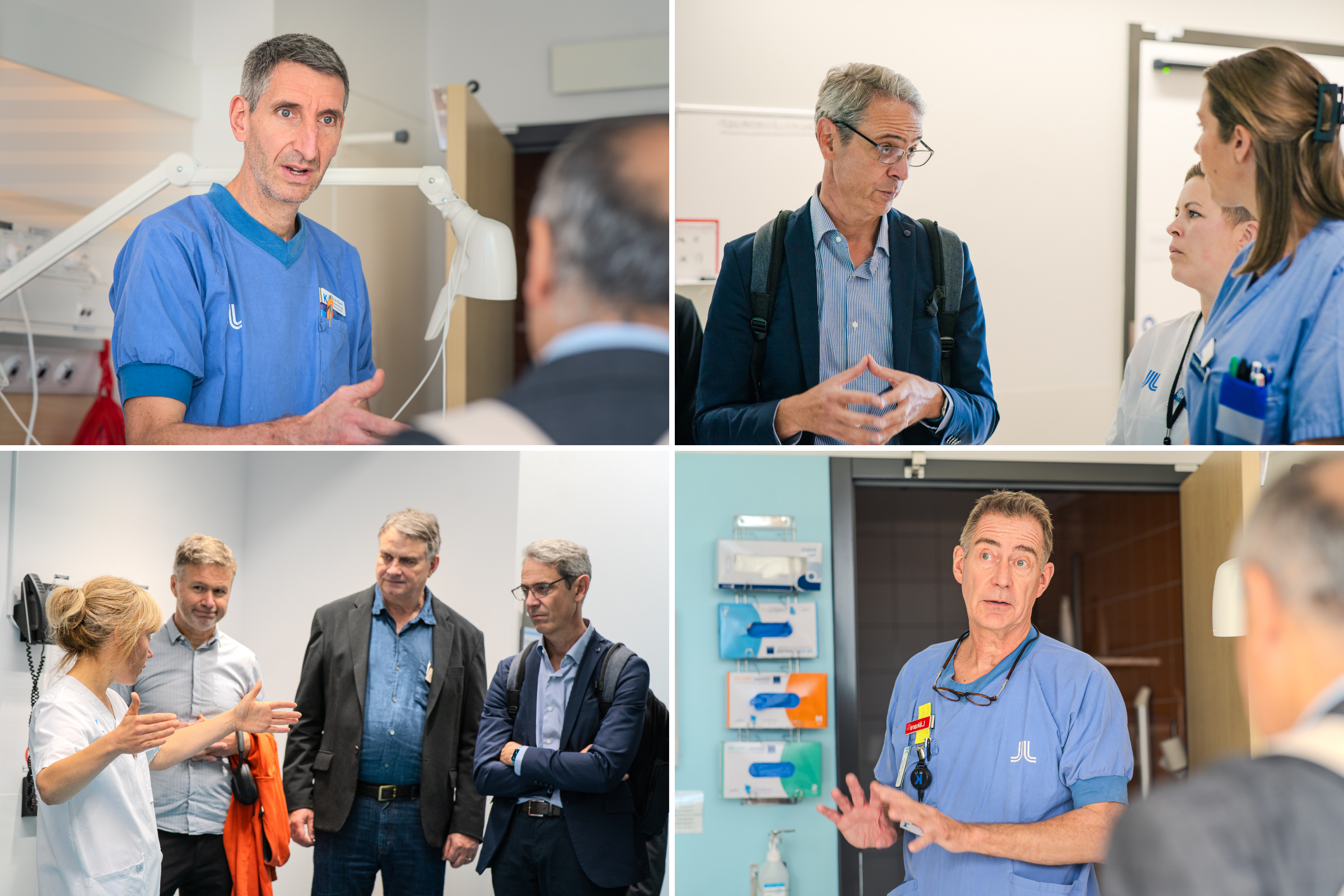The ECDC visited Karolinska to evaluate efforts against antimicrobial resistance

As part of the evaluation of Sweden's efforts against antimicrobial resistance, representatives from the ECDC and the European Commission visited Karolinska University Hospital. Coordinated by the Public Health Agency of Sweden, the visit provided the delegation with deeper insight into the practical work being done to combat healthcare-associated infections and antibiotic resistance.
In the morning, they visited an intensive care unit, a surgical/oncology ward, and the clinical microbiology laboratory to gain multiple perspectives on how the hospital manages these challenges in practice.
Karolinska's Chief Medical Officer, Ylva Pernow, participated in the tour and views the ECDC visit positively.
"The visit from the ECDC provides us with a valuable opportunity to showcase our work while also receiving feedback to strengthen our efforts against antimicrobial resistance and healthcare-associated infections. It’s an important step in the continued national effort," said Ylva.

"Karolinska is Unique in Doing This"
Pontus Nauclér, Senior Infectious Disease Consultant at Karolinska University Hospital, emphasized the importance of using new technology and medical records data to improve the fight against healthcare-associated infections.
"This visit is important not only to highlight how we manage and ensure the responsible and optimal use of antibiotics, but also to showcase our ongoing efforts to use medical records data more intelligently to identify and prevent healthcare-associated infections — which is a significant step forward."
He continued:
"With the new automated tool we're developing, we'll be able to detect patients with serious infections, such as sepsis, urinary tract infections, and catheter-related infections, more quickly and provide continuous feedback to the departments. This makes our work both more efficient and time-saving. This approach and tool are unique to Karolinska and are simply a smarter way to work," Pontus concluded.
The goal is for this automated tool to be operational by the end of 2024.
